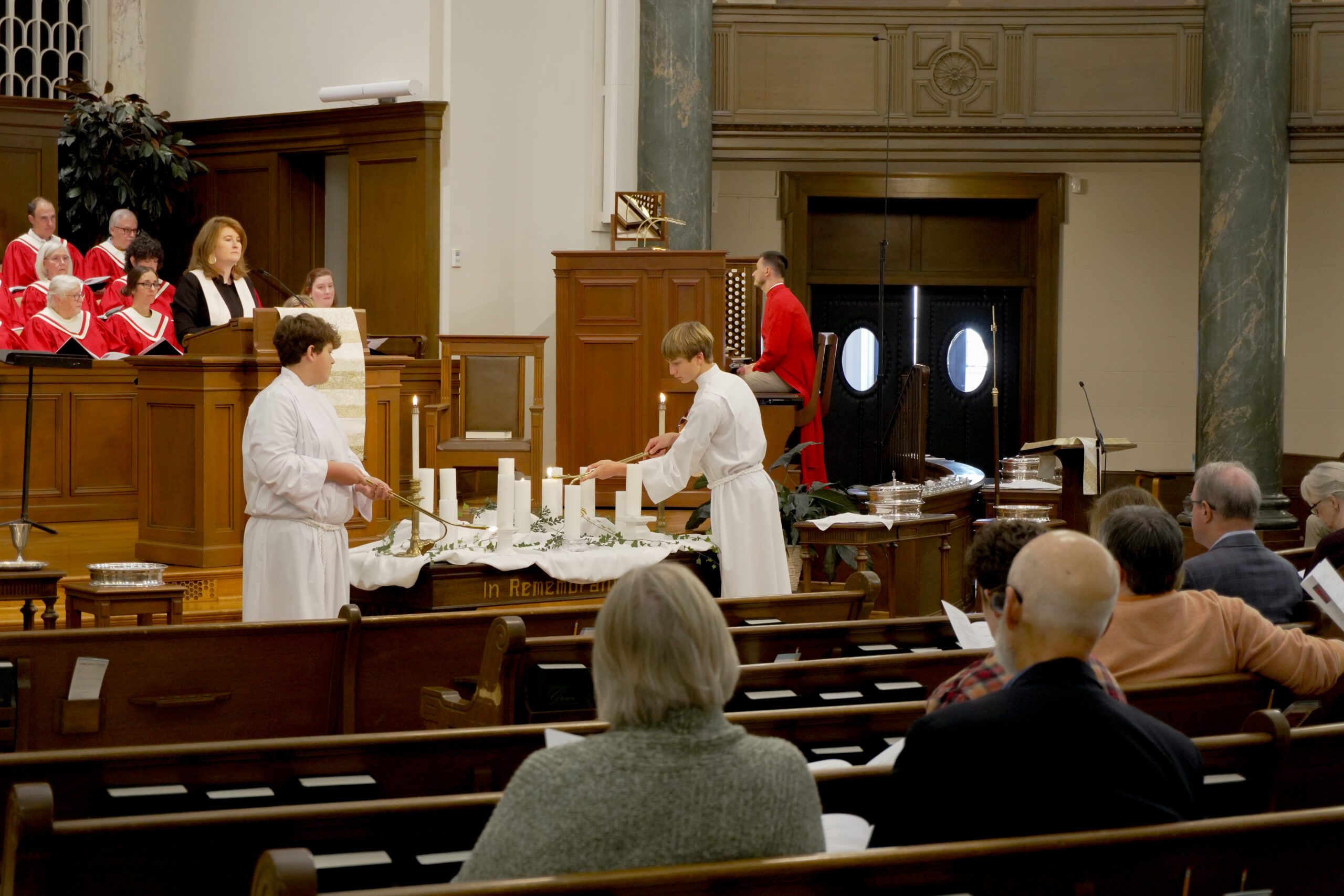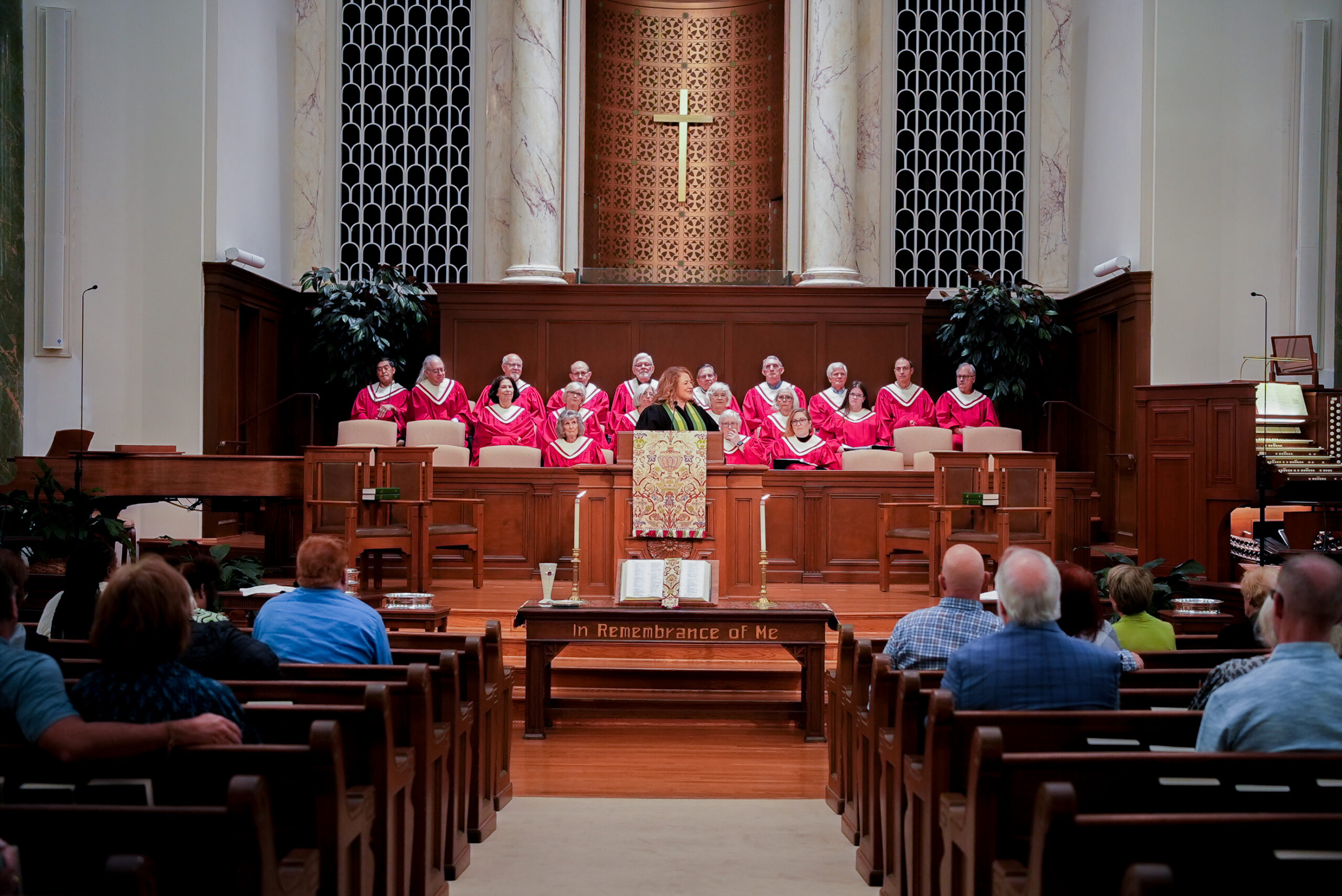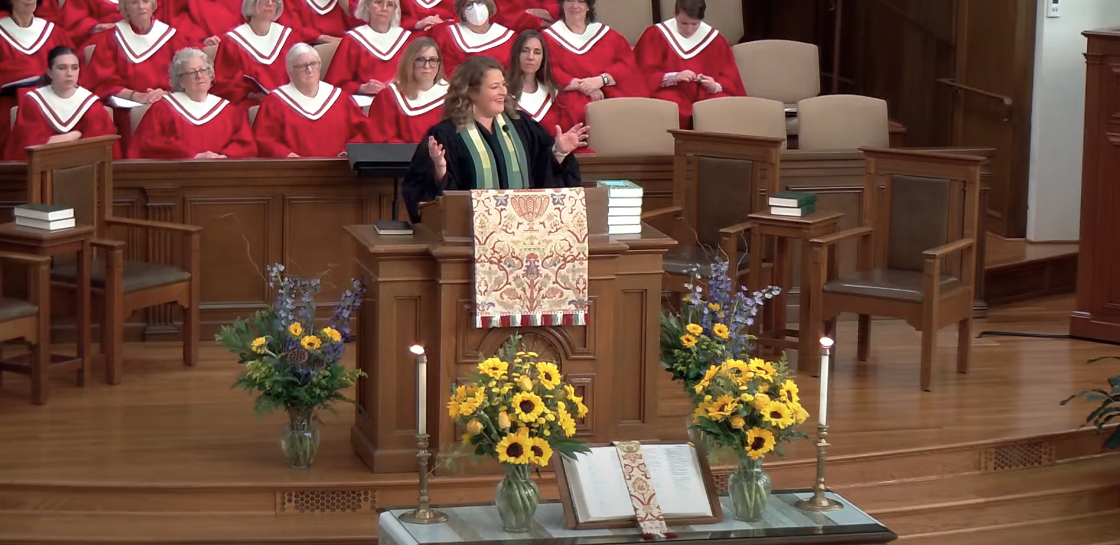I Cartoonist and comedian Seth MacFarlane, creator of “The Family Guy” show, was interviewed a dozen years ago on NPR’s Fresh Air about a new album he had created. The host, Terry Gross, spent much of the interview probing his work on Family Guy and this new collection of songs, but in her final question, she asked him about 9/11. It was a question he got a lot, for you see, Seth MacFarlane was to have been on United Airlines Flight 175 from Boston to LA, the plane that was hijacked and flown into the World Trade Center’s South Tower. As was his custom, Seth was running late. His travel agent gave him the wrong time, and he missed what became a catastrophic flight. At the age of 29, his life would have ended, but now he lives and creates and thrives. “Do you ever think of the rest of your life as being this kind of gift?,” Terry Gross inquired.
“You know,” MacFarlane responded, “in all honesty, not to sound cold, but you know, I don’t think of it that way. … I’m living the same way in 2011 as I was in 1999. I’ve missed a lot of flights!”1 You wouldn’t be the only one who heard in his response a verbal shrug in the face of a coincidence and a real missed opportunity to be changed.2It seems his absence from that flight collapsed his capacity to attend to the presence in his life, to learn from what could have been, to find a posture of humility and gratitude in the midst of it all.
II If you remember what we’ve been discussing in worship these past weeks, we’re on the third of three parables that Jesus offers to the religious authorities right near the end of his life. He’s in the Temple in Jerusalem, home of turned-over tables and angry religious leaders who question by what authority he has to act this way. These are urgent, direct parables, ones intended to disrupt and disturb. We’ve heard Jesus talk of the two sons – one who said he’d work in the vineyard and didn’t, the other who said he wouldn’t and did – and speculate on the wicked, murderous tenants who killed slaves and even the landowner’s son for their own good. And today, we hear of a wedding banquet and a king who deeply wanted people in attendance.
The kingdom of God is to be compared to the reality of a king who threw a wedding banquet for his son. He sent out his slaves to remind the guests about the feast, and they out and out refused to come. Aghast, the king sent slaves to remind them again, and this time, their responses were even worse — some blew off the invitation, a few went back to work, and several even assaulted or killed those messenger slaves. Well the king had had it! People don’t tell him no; his authority is unquestioned. Enraged, he sends forth his army and then sets fire to the city out of spite. And perhaps out of necessity or embarrassment, he sends out his slaves again to round up anyone they could find — good and bad — to come in for the feast. They did, but it seemed the king’s anger hadn’t yet cooled. Because one of those unexpected guests showed up as he was, clad in his everyday attire instead of the expected wedding robe, and the king raged again: “throw that man out,” he instructed, “and not just out of the party, out into eternal darkness where there will be weeping and gnashing of teeth.” This is the word of the Lord? Thanks be to God?
This parable has its counterpart in Luke, but where Luke’s invited guests have reasonable excuses, Matthew’s don’t. Luke’s master simply invites those who might never get invited to things, but Matthew’s king resorts to immediate violence and torches the city in retaliation; Luke’s banquet hall is filled with those from the roads and the lanes, the highways and the byways; Matthew’s is too, but the king gets offended because one such guest wasn’t dressed appropriately and kicks him out into eternal darkness! Again I say… the word of God for the people of God?
Perhaps that’s precisely where the parable disrupts the most. Perhaps we hear it and think God is like that king, quick to anger and spiteful if we don’t measure up. Or maybe we hear it and think that God organizes the kingdom like that king did, where the privilege goes to the elite and all the rest are just second-class. We might even worry that we might never be on God’s invite list, wondering if there’s even a place for us in the realm of God. On a day where we remember the saints, we wonder: will I be like the many who, when the time for the feast arrives, fails to show up? Will the list of saints ever include … me? And on a day where we offer our financial commitments to the church for next year, we wonder: will I be like the guy who shows up in the wrong clothes and get kicked out of favor forever. Is what I have to offer… right?Is it… enough?
III This isn’t a text that the lectionary offers for All Saints Day – all that “weeping and gnashing of teeth” doesn’t quite set the tone, does it? But the longer I sit with this parable, the more I’ve listened through the obvious places of disruption, the more I hear the soft, steady, and clear lesson that exists under all the drama, intoning like the ringing of a bell. And by that I mean: our presence and posture matter to God.
Let me start with the first: presence matters.
In these weeks of preaching through a theme of “attending church,” I’ve offered careful caveats that this doesn’t just mean “put your rear in the pew!” I hold to that, and (not ‘but’!) … let’s take a minute to consider today what our physical and emotional presence really does mean as we tend to our beloved community. The parable of the wedding banquet would suggest that presence has significance, right? Because those invited to the banquet wouldn’t come! They made light of it, Matthew tells us, and went away… one back to his farm, and another back to work. More pressing needs, we might suggest. I’m just one person, we think, and no one will notice.
Now don’t hear me layer your church attendance on top of a parable whose protagonist went mad with anger that no one showed up and burned down the city! (As one who was gone last Sunday, let’s pray that there will be no burning down this city just because someone took a Sunday off!) But let’s listen a layer below the disturbing parable at what Jesus might be suggesting, particularly about presence. What if Jesus is reminding us that showing up really does matter, that there is a feast for the present that the absent may miss, that ghosting on a meaningful invitation of presence means neglecting something worthy and good?
And lest we think that we have to have our lives in order before we make regular presence a part of our lives, Jesus reminds us of that banquet hall that has all sorts of folks held within, “both good and bad,” he says. So what if he’s calling us all – regardless of if our halo is on tight or if it’s been knocked out of whack – to simply show up for the feast? Not to hurry in the kitchen. Not to be in charge of the roast beef or make a dessert that everyone will be talking about. Not to be sure the table decorations are just so or to do anything else that would confuse us into thinking that our efforting is what got us a seat at the table. No – simply to show up. To say that this feast, this invitation is worthy of my energy, not for what I’ll get out of it, but simply because I was invited to feast.
Presence matters, friends. It matters as we show up for our loved ones. It matters as we be the church with and for each other. It mattered to Bill and Mary and Frances and Mac, to Jane and Beth and Norma and Elaine, to Vilia and James and Frank and Sylvia, to Ernestine and Skip and Emil and Gene, to Linda and Lindsay and all our foremothers and fathers who cheer us on as we run this race of faith today. So when you start listening to that little voice that would suggest that church is only for those who can come every week, or church is only for those who have their stuff together and their beliefs figured out, or church is only for the wealthy, the pious, those free of doubts, the saints among us – may I gently call us back to the One who says, “Look, I have prepared my meal. The very best dishes are before you. Everything is ready. Your seat is right here. Come and share a meal!” And all we have to do is to show up. Entering the regular rhythm of presence with your beloved community is a most meaningful way to practice presence. To shore up belonging. To show up. To say that this feast, this invitation is worthy of my energy, not for what I’ll get out of it, but simply because I was invited to feast.
Padraig O’Tuama reminds us that the Irish word for ‘loneliness’ shares the same root with the word for ‘grave.’3I know how strong the temptation is to burrow into isolation or self-sufficiency. I know how alluring it would be to slip away from our community, bit by bit, because we think no one would notice or care, or that our presence here isn’t important. I know how easy it would be to assume that the church will be here no matter if you are at home or at work or can offer your time or talents or treasures to make it so. So take a step away from the grave, friends, and a step toward belonging. Let me assure you: your presence matters. It matters in our church, and it matters to God.
The second: posture matters. When the guests in the parable arrived at the wedding banquet, one wasn’t dressed appropriately, was admonished, and thrown into outer darkness. Pretty sure God doesn’t kick us out of heaven for the wrong outfit! But let’s hear underneath – the summons underneath the admonishment is a summons to rise! To remember: you’ve been invited to a banquet that has nothing to do with what you’ve earned, so step up to the occasion! Don’t refuse to change, or slough off the encouragement to be different. Don’t shrug off a coincidence – a plane missed, a relationship overlooked – and pass up an opportunity for transformation. As Barbara Brown Taylor says of the parable, “the underdressed guest’s mistake was not that he showed up in shorts. It was that he showed up short on righteousness and thought no one would notice, least of all the king.”4
So when you show up for your life, do so as Paul said in Colossians, and clothe yourself with compassion, kindness, humility, meekness, and patience. Put on the garments of Christ. Go first toward those on the margins. Open wide the doors of welcome. Be humble and kind, patient and gentle – even when Twitter would suggest you should just burn in outrage. Let righteous anger stir your hearts for the sake of justice. Take off the old rags of resentment and indifference, the holey socks of perfectionism and unchecked drive, the ripped jacket of fear and shame. Put on the fabric called “beloved.” Posture your life on Jesus. Rise to the invitation. For the banquet awaits!
IVThere was a man who visited a monastery in hopes of learning from the saints who lived there, how to live a more holy life. The man had heard that the most serious servants of God made a home there, so he knocked and anxiously waited for someone to answer and open the gates.
Moments later as he walked through the gate he approached a particularly saintly looking soul and said, “Excuse me, could you please tell me, what do you and the other holy people who live here do all day behind these sacred walls and gates?” to which the saintly soul replied, “What do we do all day? We fall down and get up. We fall down and get up. We fall down and get up.”5
Sounds like presence and posture. Sounds like a saint to me. Sounds like you and me. Amen!





